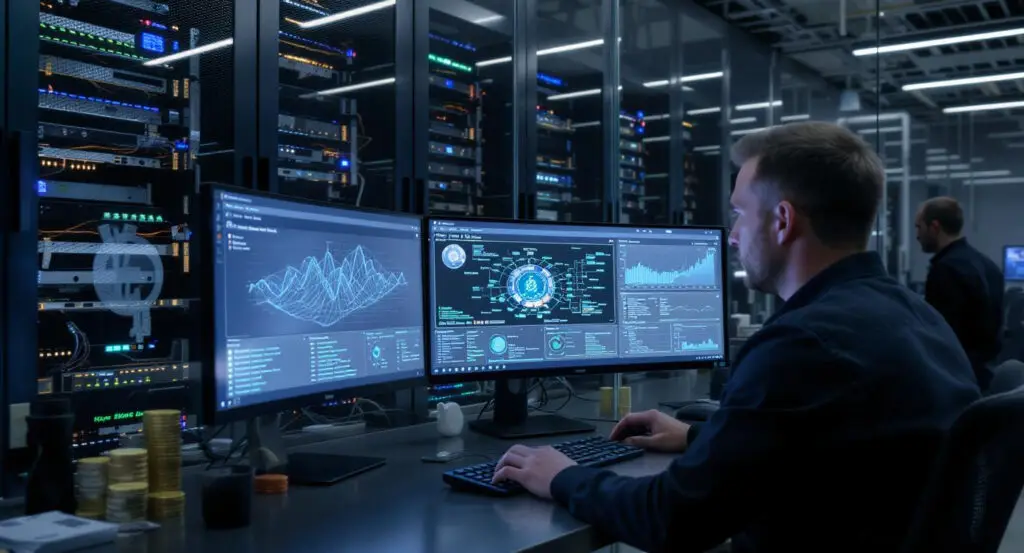The Blurring Lines of Faith and Artificial Intelligence
The phrase “Alexa, can you pray with me?” once sounded like science fiction, but today, it’s becoming a part of daily life. As artificial intelligence (AI) continues its rapid evolution, so too does the way individuals practice their faith. Religious expression is being reshaped in real-time, moving from traditional sanctuaries to screens, voice assistants, and algorithm-driven platforms. This unprecedented intersection of religion and technology presents both incredible opportunities and growing concerns.
At the heart of this transformation lies a crucial question: What does religious freedom and expression truly look like in the age of AI? The increasing role of AI in spiritual life is undeniable, prompting a re-evaluation of how faith is experienced, shared, and preserved in a digitally mediated world.
AI’s Role in Expanding Spiritual Access and Convenience
AI’s growing presence in religious life is undeniable, offering significant benefits in terms of accessibility, convenience, and personalisation. Apps like Hallow and Abide provide 24/7 spiritual support through guided prayer, Scripture readings, and AI-personalised devotionals. Chatbots are being utilised to simulate conversations with spiritual mentors or even biblical figures, offering a unique form of digital companionship. Furthermore, sermon-writing tools can now generate outlines tailored to a congregation’s demographic profile, assisting religious leaders in content creation.
These technological features are especially meaningful for individuals who are isolated, seeking guidance outside of traditional church hours, or who are new to a faith and might feel more comfortable exploring in a digital, low-pressure environment. The Vatican, in a 2025 ethics statement, acknowledged this potential, emphasising the need for “responsibility and discernment to employ AI’s immense potential to benefit rather than degrade humankind,” recognising its capacity to expand spiritual access to millions globally.
The Risk of Shallow Faith When Technology Replaces Relationship
While faith-based technology is not inherently dangerous and is already expanding spiritual access, a deeper concern arises regarding what might be lost if faith becomes overly dependent on artificial delivery. This is where technology risks fostering a shallow faith. While AI can generate spiritual content, it fundamentally cannot replicate a spiritual relationship. An AI may mimic a prayer, but it cannot genuinely commune with God. It may generate a sermon, but it lacks the capacity to minister to the human heart with true empathy or spiritual insight.
Heidi Campbell, a professor of communication at Texas A&M and author of Digital Religion, explains this dilemma: “Religious meaning is not simply ‘downloaded’ from religious texts or leaders but is actively constructed through the choices, interpretations, and practices of believers as they engage with digital media.” Faith, at its core, is a relationship, not a formula. While technology can undoubtedly support that relationship by providing tools and resources, it cannot, and should not, replace the profound, personal, and communal aspects of spiritual connection.
Threats to Religious Liberty and Algorithmic Filtering
An even more pressing issue in this digital-first world is the potential erosion of religious liberty. Major platforms have already faced criticism for flagging or deprioritizing religious content, raising concerns about censorship. If AI systems become the arbiters of “acceptable” spiritual expression, it could lead to the filtering or moderating of religious lessons, sermons, or doctrine. This risk to religious freedom is compounded by the sheer scale and speed of AI deployment.
As algorithms gain more control over what users see and hear, the potential for ideological bias grows, whether intentional or not. Religious viewpoints could be downranked, censored, or subtly reshaped without users ever being aware of the algorithmic intervention. In a 2024 address at the Davos Summit, Pope Francis warned that AI could worsen the global “crisis of truth,” increasing misinformation and eroding confidence in authentic belief systems, directly impacting the free exercise of religion.
Bias, Misinformation, and the Crisis of Truth
The pervasive influence of AI in content generation and distribution introduces significant risks related to bias and misinformation, potentially worsening a global “crisis of truth.” As algorithms control more of what we see and hear, their inherent biases, whether programmed intentionally or emerging from the vast datasets they are trained on, can subtly shape perceptions. This can lead to religious viewpoints being downranked, censored, or reshaped without users ever knowing what’s happening on the other side of the screen.
Pope Francis, in his 2024 address at the Davos Summit, specifically warned that AI could exacerbate this crisis, increasing the spread of misinformation and eroding confidence in authentic belief systems. Greg Epstein, a humanist chaplain at Harvard University, echoes this concern, noting that “a major source of concern is that some people are treating AI itself as a higher power.” He warns that “if religious and secular people aren’t careful, what artificial intelligence is promising or threatening to do is really supersede religion or outpace it.” This highlights the danger of AI becoming an authoritative source that inadvertently distorts or replaces genuine spiritual enquiry and belief.
AI’s Creative Autonomy and Ethical Oversight
What makes AI’s impact on religious expression uniquely different from previous communication technologies is its creative autonomy. Unlike the printing press, radio, or television, which primarily broadcast religious messages, AI doesn’t just transmit; it generates them. It doesn’t merely play back sermons; it drafts them. It responds to questions and offers conclusions, effectively becoming a content creator in its own right.
This fundamental shift necessitates rigors ethical oversight. As AI systems gain the ability to autonomously generate religious content, the responsibility for ensuring accuracy, theological soundness, and freedom from bias becomes paramount. This also means that people of faith will need to be even more vigilant about their rights to free expression and ensure that their beliefs are not inadvertently filtered or reshaped by algorithms. The collision of faith and AI is already here, and the challenge lies in ensuring that religious freedom flourishes rather than becoming constrained by the whims of algorithmic design.
Ensuring Religious Freedom in the AI Age
Throughout history, religious institutions have embraced new forms of communication, from the printing press to radio and television, each era introducing both risks and new opportunities for the free exercise of religion. However, AI presents a novel challenge due to its creative autonomy and potential for pervasive influence. For faith to remain truly free, it must also remain visible, and that visibility must not be subject to the whims of algorithmic design or the biases embedded within AI systems. Ethical oversight of AI development and deployment in religious contexts is essential.
This means people of faith will have to be even more vigilant about their rights and the integrity of their spiritual expression. Religious expression must remain rooted in the fundamental freedom to believe, speak, gather, and worship without interference. Ultimately, no matter how sophisticated AI systems become, truth and fundamental human rights are not generated by code; they are revealed and granted by a higher power, emphasising the enduring importance of human discernment and spiritual autonomy in the age of artificial intelligence.
Read More: China Bets on Real-World AI Applications to Challenge US Dominance























